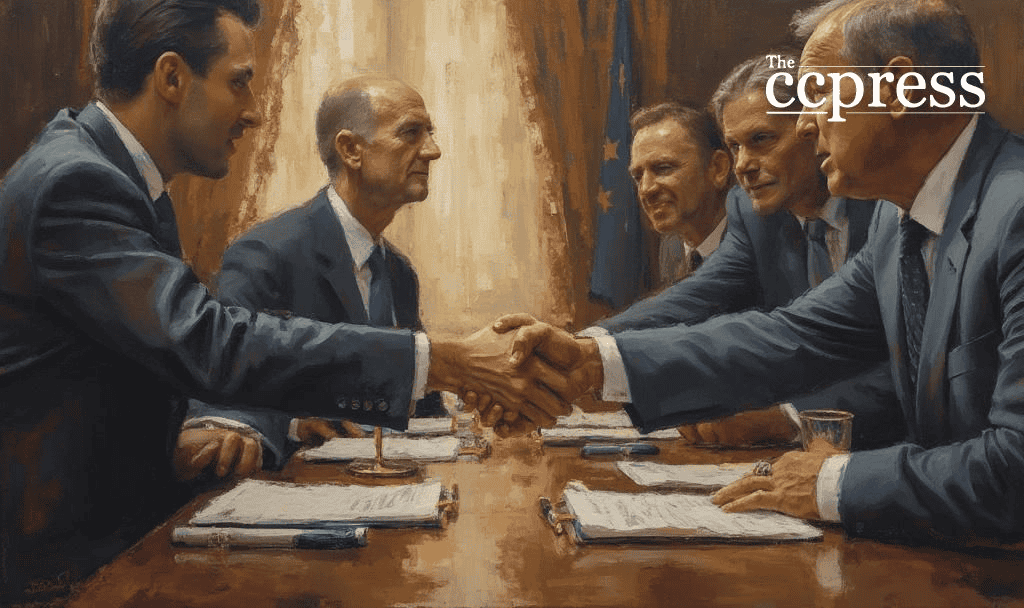- US and EU conclude tariff negotiations, impacting cryptocurrency markets.
- Stablecoin and crypto trading volumes show notable shifts.
- Lack of public commentary from crypto leaders on tariffs.

The US and EU are finalizing a tariff agreement, imposing a baseline 15% tariff on select goods, impacting global markets from July 27, 2025.
This affects the cryptocurrency sector due to increased stablecoin volumes, reflecting traders hedge against economic uncertainties.
Global Financial Dynamics Shift
The United States and European Union have reached a tariff agreement, centering on a 15% baseline. Finalized terms unfold amid broader geopolitical concerns, impacting global financial dynamics.
The main figures involved include US President Donald Trump and EU negotiators. Negotiations adjusted initially proposed tariffs down to 15%, reflecting years of strategic tension.
Crypto Market Reactions
The deal has rippled across financial markets, with stablecoin volumes experiencing significant spikes. Crypto traders are utilizing stablecoin hedges amid macro risks.
Political and financial arenas are witnessing shifts. The US-EU tariff influences both traditional and emerging market strategies without immediate direct crypto protocol impacts.
Cryptocurrency’s Historical Context
Cryptocurrency price volatility remains within expected ranges, despite changes. Ethereal and Bitcoin standard responses continue.
Historically, geopolitical stress influences digital assets, increasing usage of non-sovereign assets like BTC. However, official sanction effects remain absent.
As of now, there are no primary statements or quotes from political leaders or key opinion leaders (KOLs) within the cryptocurrency sector related to the recent US-EU tariff deal. Consequently, I am unable to provide any quoted insights or commentary as requested.
| Disclaimer: The content on The CCPress is provided for informational purposes only and should not be considered financial or investment advice. Cryptocurrency investments carry inherent risks. Please consult a qualified financial advisor before making any investment decisions. |

